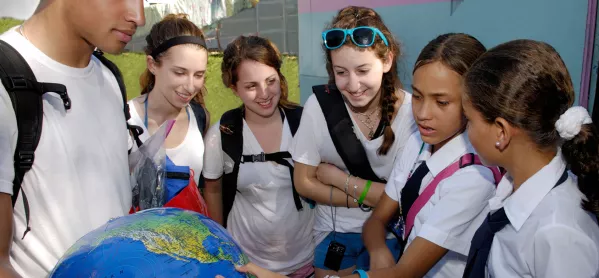Schools in England will be able to apply for grants to take disadvantaged students on international exchanges, as part of a £2.5 million government scheme.
The programme announced by education secretary Damian Hinds will allow pupils aged 11 and above to visit partner schools around the world.
It aims to enable them to experience different cultures, improve language skills and build independence.
Speaking ahead of the Education World Forum meeting of international education ministers beginning in London tomorrow, Mr Hinds stressed the importance of ensuring that disadvantaged children do not miss out on the life and academic opportunities offered by overseas visits.
Programme partner the British Council found that 39 per cent of secondary schools run exchanges, compared with 77 per cent of independent schools.
The international cultural group has also warned that Brexit has made students and parents less interested in learning a foreign language.
The value of international student exchanges
Mr Hinds said: “I want every child to have a world-class education, and that includes the opportunity to experience other cultures and go to places they wouldn’t normally visit - whether that’s practising their Mandarin in China or learning about American history in the US.
“School exchanges are so valuable, bringing subjects such as modern languages and international history to life, as well as helping pupils to develop into confident, independent and well-rounded young people.
“As Britain leaves the European Union, it’s more important than ever to show how much we value international opportunities, language-learning, and ensuring our young people have a global outlook - something I’ll be discussing with education ministers from around the world at Education World Forum.
“This investment will help schools who may not have much experience organising trips abroad to ensure that their pupils don’t miss out on all the fantastic benefits these experiences can bring, encouraging children to broaden their horizons and aim high throughout their education and beyond.”
Funding will be targeted at schools with above-average numbers of pupil-premium students.
It is estimated that, over the course of the programme, trips could be funded for 2,900 pupils.
Schools will be able to register their interest on the British Council website from Monday.




